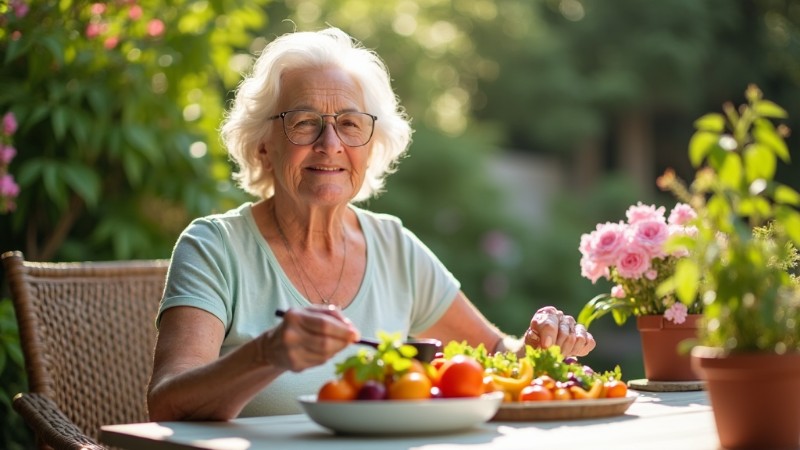Eating well is essential for maintaining both physical health and mental well-being as we age. For older adults, a balanced diet can significantly enhance quality of life and longevity. Equally important is hydration, as staying properly hydrated plays a crucial role in bodily functions, energy levels, and overall health. However, various factors can complicate the ability to meet nutritional needs, making it vital to address these challenges effectively.
Understanding good nutrition for seniors
Nutrition plays a pivotal role in energy levels, weight management, and disease prevention. A balanced diet consists of proteins, carbohydrates, fats, vitamins, and minerals. As people get older, they may need fewer calories but require more of certain nutrients, such as protein, calcium, and vitamin D. This shift underscores the importance of focusing on nutrient-dense foods rather than calorie-dense options. A well-balanced diet for older adults should include:
Fruits and vegetables: Aim to fill half your plate with a variety of colorful produce to ensure a broad range of vitamins and minerals.
Dairy and alternatives: Low-fat dairy options such as milk and yogurt are important for calcium intake.
Whole grains: Foods such as quinoa, brown rice, and whole-wheat bread should comprise a quarter of your meal.
Protein sources: Incorporate lean meats, fish, beans, and legumes to prevent muscle loss and maintain overall health.
Healthy fats: Incorporate sources like olive oil, avocados, and fatty fish to provide essential fatty acids.
Moreover, dietary fiber is crucial for maintaining digestive health and reducing the risk of chronic diseases such as type 2 diabetes and heart disease. The Institute of Medicine recommends a daily fiber intake of at least 30 grams for men and 21 grams for women over 50. Foods rich in fiber include fruits, vegetables, whole grains, and legumes.
The role of hydration
Hydration is equally important as nutrition, especially for older adults. Water comprises nearly 60% of the human body and is vital for maintaining functions such as circulation, temperature regulation, and waste elimination. Seniors are advised to drink around two liters of water daily, which can be supplemented with other beverages like milk, tea, or juice.
Dehydration can exacerbate health conditions or lead to new complications. Encouraging fluid intake and monitoring hydration levels are essential aspects of elder care.
Eating difficulties among older adults
Older adults often encounter various challenges that can make eating difficult. Health issues such as dental problems or digestive disorders may require them to opt for softer foods like eggs, cooked vegetables, or canned fruits. Additionally, a decline in the senses of taste and smell can diminish the enjoyment of meals, but incorporating herbs and spices can help enhance flavors.
Social isolation can further impact their eating habits, as living alone may reduce their motivation to prepare and consume meals. Engaging in social dining experiences or inviting friends over for meals can encourage better eating habits and foster a sense of community.
Overcoming barriers to healthy eating
Older adults often face challenges that can hinder their ability to maintain a healthy diet. Factors such as reduced appetite due to physiological changes, health conditions, and social isolation can all contribute to decreased food intake. Strategies to overcome these barriers include:
Adjusting portion sizes: Rather than sacrificing components of a balanced meal, older adults can focus on reducing portion sizes to maintain a healthy body weight.
Meal preparation: Preparing meals in advance can make healthy eating more manageable during busy weeks. One-pot meals are not only nutritious but also convenient and budget-friendly.
Seeking assistance: Grocery delivery services can simplify shopping for those with mobility issues or limited access to transportation.
Prioritizing good nutrition and hydration is essential for older adults to maintain physical health and enhance their quality of life. A balanced diet rich in fruits, vegetables, whole grains, lean proteins, and healthy fats, combined with adequate hydration, can significantly contribute to overall well-being.
While challenges such as health issues, sensory decline, and social isolation may complicate eating habits, implementing strategies like meal preparation and social dining can foster healthier choices. By addressing these barriers and focusing on nutrient-dense foods, older adults can enjoy a vibrant, healthier life well into their later years.













